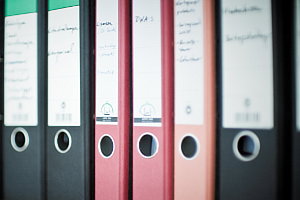Recently I gained new knowledge about auditors, which was slightly surprising, so I wanted to share and ask you about your experience. Here are a few questions to think about:
What if the auditors come with a pure paper-based approach? They are not interested in the results, the impact, the evidence of the work done, but they are interested in the invoices, contracts, the certificates, delivery notes, insurance papers, the signatures, the stamps, etc...
 I fully understand the economic check, the need to see that all administrative issues were tackled, but what about the result-based monitoring approach that the Commission is focusing on?
I fully understand the economic check, the need to see that all administrative issues were tackled, but what about the result-based monitoring approach that the Commission is focusing on?
How much should a subcontracted auditing company follow their own approach for an audit and how much they should consider the process that the Audit unit of the European Commission is following?
The beneficiaries follow the rules of the Commission, so they are collecting and archiving all evidence documentation on the achieved results. What if in a small organisation the delivery notes are not kept in the accounting department?
Does it matter if there is a printed copy kept of the material delivered or shall they go back to the supplier and ask for an additional paper, a certification that the material has been indeed delivered?
What if in a major organisation the catering invoice does not have an order form or a contract and/or a certificate on delivery attached?
Does it matter if the manager has a nice conference proceedings printed with photos proving the catering was done and of course the invoice is properly booked? Shall they search for the e-mail communication between the catering company and the event organising department to prove the service has been ordered?
Which one is the more efficient auditing method to prove the eligibility of the costs? Showing the e-mail about ordering a translation service and the contract or showing the actual translated report linked to the invoice?
I think the newly initiated audits are broadcasting a wrong message. "Keep all papers and make sure all papers have a back-up paper."
If you want to hear more details about the new stories, follow the blog or come to our training course in Copenhagen, Brussels and the Lake Balaton.
In summary: To make sure that you are safe, well-prepared for the audit, my advice is to archive all papers and all results - depending on the paper-approach or result-approach followed, you might end up with a completely different audit.
Read more:
Part 3: Problems with the time-sheets
Part 2: Problems with the Personnel Costs at a university
Part 1: Introduction to the blog series




